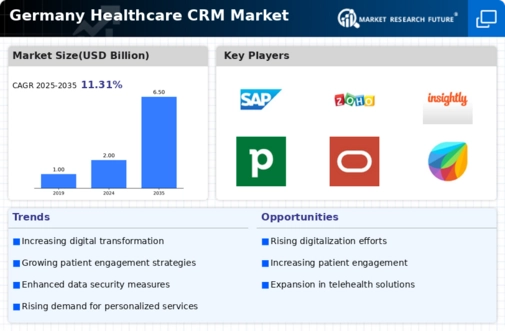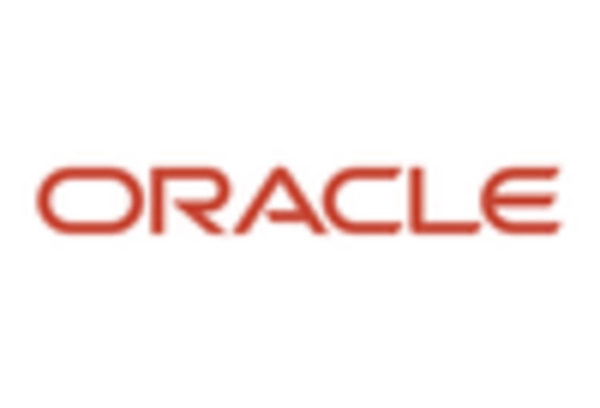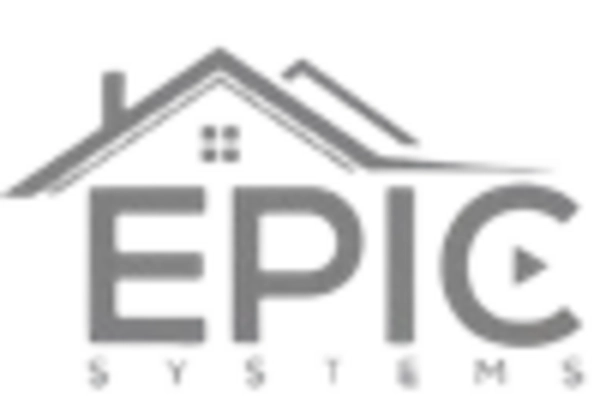Increased Focus on Telehealth Services
The healthcare crm market in Germany is witnessing a surge in demand for telehealth services, which has become a vital component of healthcare delivery. As patients increasingly seek remote consultation options, healthcare providers are integrating CRM systems to manage telehealth interactions effectively. This integration allows for better scheduling, follow-up, and patient communication, ultimately enhancing the overall patient experience. Recent studies indicate that telehealth usage has increased by over 50% in the past year, highlighting the necessity for CRM solutions that can support this growing trend. The healthcare crm market is thus adapting to accommodate the unique needs of telehealth, ensuring that providers can deliver quality care remotely.
Technological Advancements in Healthcare
Technological advancements are reshaping the healthcare crm market in Germany, as innovations such as artificial intelligence (AI) and machine learning (ML) are integrated into CRM systems. These technologies enable healthcare providers to analyze patient data more effectively, leading to improved decision-making and enhanced patient outcomes. The market is projected to grow at a CAGR of 12% over the next five years, driven by the increasing adoption of AI-powered CRM solutions. This growth reflects a broader trend towards leveraging technology to optimize healthcare delivery and operational efficiency, positioning the healthcare crm market as a critical component of modern healthcare infrastructure.
Growing Demand for Patient-Centric Solutions
The healthcare crm market in Germany is experiencing a notable shift towards patient-centric solutions. This trend is driven by an increasing demand for personalized healthcare experiences, as patients seek more control over their health information and treatment options. Healthcare providers are recognizing the necessity to enhance patient engagement through tailored communication and services. According to recent data, approximately 70% of patients express a preference for healthcare providers that utilize technology to improve their experience. Consequently, the healthcare crm market is evolving to meet these expectations, with solutions designed to facilitate better patient-provider interactions and streamline care processes.
Rising Competition Among Healthcare Providers
The healthcare crm market in Germany is also being propelled by rising competition among healthcare providers. As the landscape becomes increasingly competitive, organizations are seeking innovative ways to differentiate themselves and attract patients. CRM systems are being utilized to enhance marketing strategies, improve patient retention, and streamline service delivery. With an estimated 30% of healthcare providers planning to invest in CRM solutions within the next year, the market is poised for substantial growth. This competitive pressure encourages providers to adopt advanced CRM technologies that can offer a strategic advantage in patient engagement and service excellence.
Regulatory Changes and Compliance Requirements
The healthcare crm market in Germany is significantly influenced by evolving regulatory frameworks and compliance requirements. The introduction of stringent data protection laws, such as the General Data Protection Regulation (GDPR), has compelled healthcare organizations to adopt robust CRM systems that ensure data security and patient privacy. As a result, the market is witnessing a surge in demand for CRM solutions that not only comply with these regulations but also enhance operational efficiency. It is estimated that compliance-related investments in the healthcare sector could reach €1 billion by 2026, indicating a strong market driver for healthcare crm solutions that prioritize regulatory adherence.
















